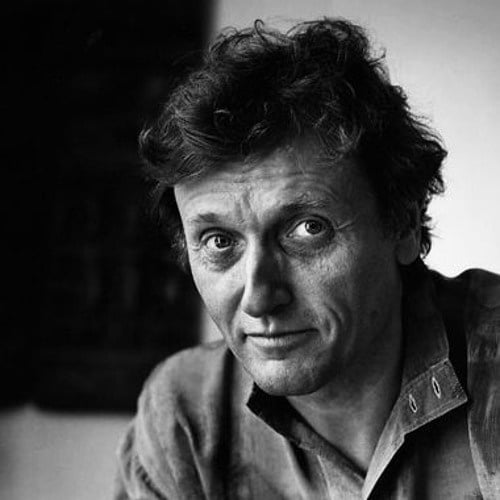The kinkier side of a modernist French composer
NewsA life of Gerard Grisey, reviewed for us by Susan Hall.
Music was Gérard Grisey’s way of smuggling love over the boundary between life and death, suggests Jeffrey Arlo Brown in his highly engaging biography, The Life and Music of Gérard Grisey. Delirium and Form. (University of Rochester Press, 2023).
Grisey composed with a sense of urgency, which the author conveys. It is as though Grisey knew all along that he was going to die young and had to cram as much work as he could into scarce lived moments. He expressed his vitality in music full of new ideas, including the radical notion that music, or sound in which it was rooted, was an expression of body and mind (all cradled in the soul, but that’s another subject). This is not news. Plato and Aristotle wrote that music penetrates body and soul. The philosopher Hegel observed that music is inward.
Listening to Grisey’s music is a particularly intense experience where time can be unusually slow and then speed up super fast.
The music world into which Grisey came was dominated by the figures of Stockhausen, Ligeti and Olivier Messiaen, whose courses Grisey attended in Paris. The serialists had abstracted music or sound from its origins in a tone, in which the overtones of a single note resided. Overtones inside the tone are heard naturally by the ear. It is these notes, and tiny gradations of notes, that Grisey would use to develop both new sounds and a different listening experience. He found serialism dry.
Pierre Boulez for much of Grisey’s career was the most powerful person in European music. While Brown portrays Grisey as a figure who was not cowed by authority, he does describe the circuitous paths Grisey took to avoid confrontations with Boulez. Grisey needed commissions and he didn’t want them blocked from the Boulez starting gate.
Part of the pleasure of listening to Grisey’s music involves its lush carnality. Throughout Brown’s book, the general reader will get a picture of what, according to Pew Research, is French intense sensuality. The US tops the list of prudes. British are mid-list.
The author had extensive conversations with Grisey’s first wife Jocelyne, and other long-term partners. They accepted the composer’s work and sex habits. The composer’s funeral was attended by a bevy of beautiful women.
Grisey had an irresistible urge to seduce the women around him. He could hurt his partners by bedding their cleaning ladies and piano students. Grisey dips into the kinkier side of sex à la Georges Bataille. The composer wrote about his sadistic fantasies and took one lover to a sex shop. He associated sexuality with violence and death. For him, music penetrates us whether we want it or not. Both his music and his sex life gained power from the interplay of pleasure and pain, violence and gentleness.
This combination of carnal and spiritual can make magical music. Grisey appreciated Leoš Janáček who also expresses deeply sensual tones. Grisey’s teacher, Messiaen fell more on the other-worldly side of eroticism as he played the organ at a weekly Catholic service in Paris.
Grisey’s own days as a practising Catholic ended, but his sense of other-worldliness did not. What is simply and perhaps not accurately called spectral music has a wonderful sense of being in outer space. Grisey observed however that music was sound and not astronomy. His students laughed because Grisey wrote “Le noir de l’etoile.”
The draw of Grisey’s music for listeners is apparent. Brown also offers detailed and clear descriptions of Grisey’s compositional architecture which combine to bring out the special qualities of his music.
At the end, Grisey was on the cusp of writing opera. One of his star legatees, Kaija Saariaho, would write L’Amour de loin and Emilie, treading a path Grisey might well have taken. She wrote a lovely short song for him, Message to Gérard , in which she picks up his star theme.
The sky has brightened
the eyes went out
the star shines
man has passed by
the shadow has disappeared
the prisoner is free
(my french translation)
Finally, in Jeffrey Arlo Brown’s book, we have a full picture of one of the most important composers of the last half of the twentieth century. It should encourage the more frequent performance of his delirious, mysterious, delicious music.






Comments